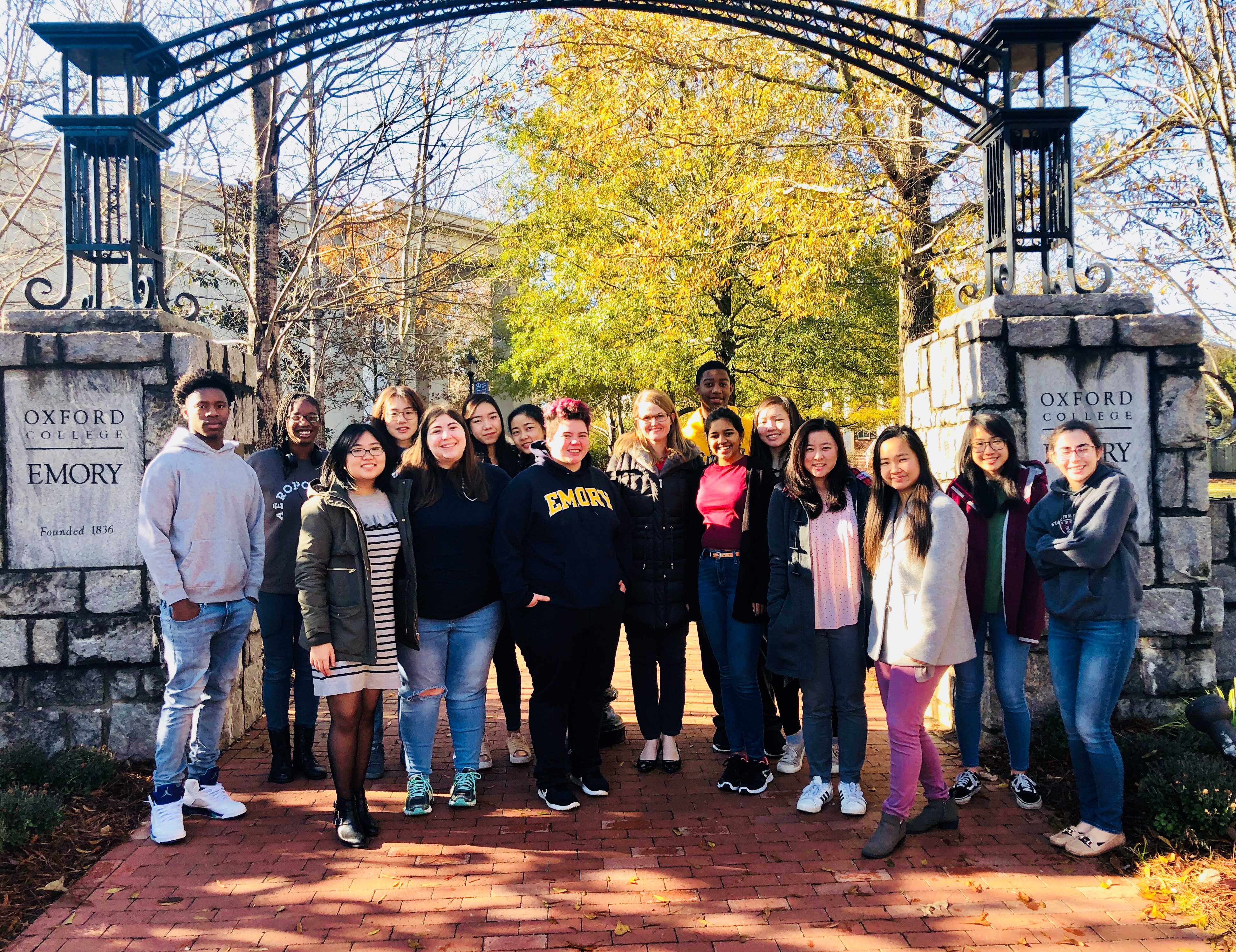2018 Interviews
The APDH’s 2018 interviews were conducted by members of Gwendolynne Reid’s fall 2018 Discovery Seminar on “Digital Natives and Digital Literacies.” The seminar included sixteen first-semester students at Oxford College of Emory University who had opted to participate in a Discovery Seminar, with most of those having ranked this particular seminar as their first choice. The class was richly diverse, with students from a variety of educational, linguistic, ethnic, and racial backgrounds, including a number of international students and students across a range of intended majors. Students also brought varied digital experiences, practices, and devices. This diversity contributed to the complexity of seminar discussions and the sensitivities students brought to the interviewing process.

Members of the fall 2018 Discovery Seminar on "Digital Natives & Digital Literacies."
After having read scholarship on digital literacies and the digital natives debate and conducted reflective writing on their own assumptions and experiences for several weeks, the class read scholarship on conducting qualitative and oral history interviews and listened to interviews from other archives. Each member of the class also completed the CITI Program’s “Students in Research” module of their Social-Behavioral Human Subjects Research course, a module that includes a review of ethical principles for social research. Students then read the IRB protocol for the APDH and collaborated on revising the interview protocol for final submission to Emory’s IRB.
Our interview protocol was based (with permission) on Stephen Wiley’s “Guided Device Tour Interview,” a protocol that asks interviewees for a tour of a digital device they use to connect with people and the internet. By grounding the interview in a person’s experiences with a specific device, the protocol seeks to account for the materiality and particularity of people’s relationships with information and communication technologies, digital media, and the Internet. By also grounding the interview in the device’s records of participants’ activities—such as calendar entries, text messages, and screentime calculations—the protocol moves the conversation away from general memories toward specific moments and stories. Participants do not need to show the interviewer their screen in order to achieve the purpose of the tour, and interviewees therefore retain control of their device at all times, choosing which visual details to share or not share (a practice key for protecting the privacy of others whose data the interviewee may have access to). Wiley’s interview covers four dimensions of participants’ device use: activities, people, places, and media. For our archive, we chose to also ask participants about the device itself and about their history of digital learning.
Once we had received our IRB determination, students each began with an interview of someone from their generation, with many choosing to interview classmates. Most interviews were conducted in person, but a few were conducted remotely using a videoconferencing platform. Before interviewing, interviewers completed the informed consent process and asked interviewees to complete an “intake background form” with fourteen background questions designed to provide the archive’s meta-data. Interviewers then proceeded with the interview, audio recording the interview and, if the participant had agreed, taking a picture of the interviewee’s device for the archive. Later, interviewers transcribed the interviews for the archive. In the second phase of the class, students found participants born before 1980 to interview and repeated the process, yielding a total of thirty-two* interviews.
Resources
2018 Informed Consent Form (because the IRB determined the APDH is "Not Research" this does not have an approval date.)
2018 Assent Form (because the IRB determined the APDH is "Not Research" this does not have an approval date.)
*Two informed consent forms were misplaced by an interviewer and therefore the public archive only includes 30 of the 32 interviews conducted.

